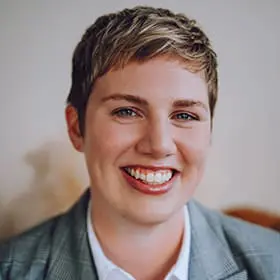
Insights
August 3, 2022
3 Ways to Overcome the Initial Hurdles of Estate Planning
In Estate Planning, Wealth Strategy
When creating an estate plan, many individuals lack a clear vision of what they want. It’s a weighty and complex topic to address and often gets kicked down the road. Even when people take the initiative to hire an attorney to draft an estate plan, those drafts can sit in an inbox for six months or a year, waiting to be reviewed. Much of the original discussion can be forgotten when extended delays like that happen or circumstances and needs may change.
Getting your estate plan into place can be an overwhelming process. We’re here to help provide some practical tips for overcoming common emotional hurdles of starting the estate planning process.
1. Don’t Tackle It Alone. Work Through the Process with a Trusted Advisor.
Getting your estate plan in place is easier with a trusted advisor to keep you accountable. A financial advisor or attorney will engage you in the process, simplify steps, and keep it from feeling overwhelming. Advisors can offer suggestions and help you gain clarity. For example, they can help you start articulating your goals and objectives and define the “why” behind those goals. Beginning with a high-level understanding of what you’re trying to accomplish can help direct strategic conversations when things get more technical. These discussions can take time. Having these discovery talks with your wealth manager can be helpful before engaging an hourly billable attorney.
For this reason, finding an advisor whose communication style you are comfortable with is essential. An open communication pathway can make a big difference in moving the process along and allow you to discuss your specific needs confidently. Effective communication will help ensure your wishes are clear and accounted for in your estate plan.
A trusted advisor can also leverage your time and give an attorney a jump start by providing a copy of your net worth statement, details on account titling and beneficiary designations, and immediate family’s names and dates of birth. This practical assistance expedites the process and doesn’t allow administrative information gathering to delay the planning progress.
Finally, if you do not have an attorney – ask us for a recommendation. We have relationships with many estate planning attorneys with experience ranging from simple to highly complex estate planning needs. We firmly believe a team effort is essential in estate planning.
2. Don’t Let Perfect Be the Enemy of Good
The most important goal in beginning your estate planning journey is getting something in place. Don’t let the idea of creating the “perfect plan” or having every minor detail ironed out hinder you from getting documents signed. Remember, estate documents are not set in stone. In short, they should be reviewed for possible updates every three to five years. Prioritize an estate plan that reflects your intent instead of debating details like giving your children 20% vs. 25% of your estate. Having an estate plan goes a long way toward immediately protecting your family and assets.
To begin with, think about what you would want for your family if you passed away tomorrow. Focusing on present desires clarifies ambiguous discussions about the future. It’s challenging, if not impossible, to write a document that meets what you would want for your family today and anticipates what you will want 10-20 years later. Since the plan will be revisited as you and your children age, it is best to focus on what you want now.
The four foundational planning documents everyone should have in place are:
- Durable Power of Attorney for Finances – Puts a person in charge of financial decision-making who acts as your agent immediately upon execution or upon incapacity.
- Durable Power of Attorney for Health Care – This puts a person in charge of health care decisions who acts as your agent immediately upon execution or upon incapacity.
- Health Care Directive (Living Will) – Lets a physician know if you want artificial nutrition or hydration if you are terminally unconscious with no hope of recovery.
- Will/Living Trust – A will or Living Trust, whatever you decide to use, is the central document that distributes your estate according to your wishes.
3. Don’t Reinvent the Wheel
When starting the estate planning process, don’t feel like you need to create one from scratch. Most people can start with a standardized plan as a foundational base. Additional structural components can be easily layered on as appropriate for your situation. The key element to discuss and determine is the names of the people you want to put in charge. These individuals will be responsible for fiduciary roles, acting as trustees, attorneys, and guardians, or making medical decisions should you become incapacitated.
Firstly, create a list of two to four people who:
- You trust
- Understand and know your values
- Know your family
- Understand what matters most to you
Your list of trusted individuals can be without technical competency in any of the abovementioned roles. It’s important to remember that experts (e.g., your financial advisor, attorney, or CPA) can help provide the technical background. Focus on people you trust to be decision-makers and will carry out your wishes.
Conclusion
To sum up, estate planning is as important as the steps you take to achieve your other financial objectives. Your Coldstream team can help you start the process and refer you to an attorney to answer any detailed legal questions.
Related Articles

July 14, 2025
Empowered Together: Navigating Disability with Confidence and Compassion


July 7, 2025
The Professional Trustee: A Key to Secure and Sound Estate Management


June 27, 2025
Diversified Estate Planning for LGBTQ+ Families


